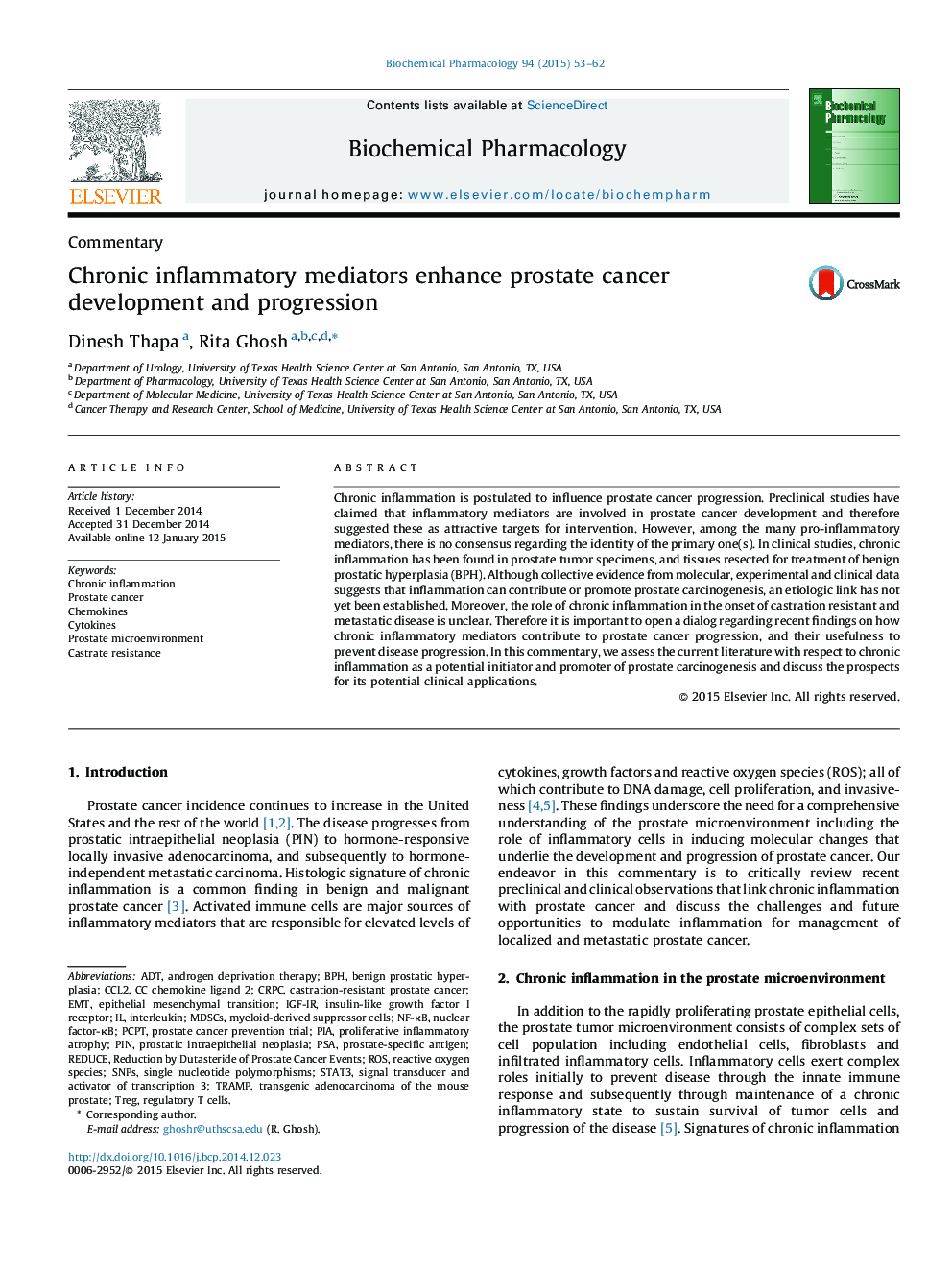| Article ID | Journal | Published Year | Pages | File Type |
|---|---|---|---|---|
| 2512074 | Biochemical Pharmacology | 2015 | 10 Pages |
Chronic inflammation is postulated to influence prostate cancer progression. Preclinical studies have claimed that inflammatory mediators are involved in prostate cancer development and therefore suggested these as attractive targets for intervention. However, among the many pro-inflammatory mediators, there is no consensus regarding the identity of the primary one(s). In clinical studies, chronic inflammation has been found in prostate tumor specimens, and tissues resected for treatment of benign prostatic hyperplasia (BPH). Although collective evidence from molecular, experimental and clinical data suggests that inflammation can contribute or promote prostate carcinogenesis, an etiologic link has not yet been established. Moreover, the role of chronic inflammation in the onset of castration resistant and metastatic disease is unclear. Therefore it is important to open a dialog regarding recent findings on how chronic inflammatory mediators contribute to prostate cancer progression, and their usefulness to prevent disease progression. In this commentary, we assess the current literature with respect to chronic inflammation as a potential initiator and promoter of prostate carcinogenesis and discuss the prospects for its potential clinical applications.
Graphical abstractFigure optionsDownload full-size imageDownload as PowerPoint slide
